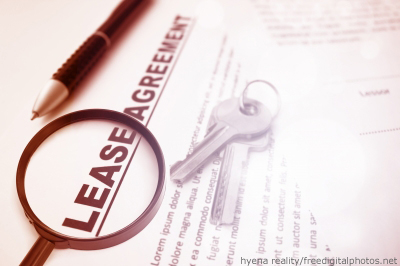
Moving into an apartment is a big commitment--before signing that dotted line make sure you are entering into a legal agreement you agree with and understand. Renting from an incompetent, unresponsive or unprofessional landlord can make your living situation difficult, stressful and unpleasant. Avoid renting from a bad landlord with these helpful tips.
Talk to other tenants
When you're apartment hunting, introduce yourself to other tenants you cross paths with in the hallway or on the property. Tell them you are considering renting a unit in the building ask how they enjoy living there. There's no better way to get an impression of a your potential new landlord by getting feedback from his tenants.
Some questions to ask include:
- How dos the landlord handle problems?
- How does the landlord respond to maintenance issues?
- How well is the property upkeep?
- How does the landlord respond to noise issues?
- How does the landlord handle late rent/rent issues?
The other tenants' opinions on the landlord should give you a good background on his or her responsiveness and conduct.
Do online research
To find out more about a landlord, browse apartment review websites such as apartmentreviews.com or apartmentratings.com. While you should keep in mind former tenants are more likely to air grievances than they are to share positive feedback, if you notice a trend of similar complaints it may be a red flag. Stories about shoddy living conditions, failure to make necessary repairs, and the landlord's reluctance to deal with unruly tenants are all reasons to be wary of renting in that property. If anyone uses the term "slumlord" in reference to your potential landlord, consider yourself warned.
Ask friends for recommendations
Do you have friends or family that rent? Ask your loved ones if they like their landlord and find out if their building is accepting new tenants. If someone you trust is vouching for the landlord, it's unlikely you will run into any problems with him or her while renting.
Get everything in writing
It may be long and confusing, but make sure to read your entire lease completely and thoroughly. Is there anything you don't understand? Have your landlord clarify and add the clarification to the lease. If there is anything you feel is missing or wrong, bring it up to your landlord and ask for it to be amended. Be sure that you agree with every term illustrated in the lease before you sign it. If you wish, you can request your lawyer to look over the lease before signing as well.
If any problem should arise during your tenancy--such as a disagreement with your neighbor or a necessary repair--be sure to get any correspondence with your landlord about the issue in writing. A landlord-tenant relationship is a contractual agreement and should always be treated as such to protect yourself legally.
Ask questions
When viewing the property and discussing the terms of the lease with the landlord, be sure to ask any questions you have.
- How old is the property?
- When was the last time it was painted? Had its carpets cleaned/carpets replaced? How often is this done?
- When is rent due? How is it collected? Are there late fees?
- What are the conditions on return of your security deposit?
- How are repairs are handled?
- How are noise complaints handled?
- When is the landlord on the property? Who do you deal with when the landlord is unavailable?
The more information you have, the easier it will be to determine if the landlord is trustworthy and competent. If you portray yourself as assertive, inquisitive, well-informed of the rental process, and sure about what you are looking for in a place, it is less likely the landlord will try to take advantage of you.
Take photos
When it's time to move in, always take plenty of photos of the unit for your records. You may need proof of the apartment's condition when you move out if your landlord tries to refuse return of your security deposit. If you notice any damage in the unit, point it out to your landlord and make sure to get photographs of it. During inspection, get a description of the apartment's condition in writing and have your landlord sign it to acknowledge any damage was pre-existing.
Know your rights
As a renter, you have rights. Nearly every state has a tenants' rights handbook--usually available online. Make sure to read yours and understand what your landlord can and cannot get away with legally to protect yourself. You should also research your legal help options--such as state paid lawyers if you ever have a problem and require legal advisement or representation in court.